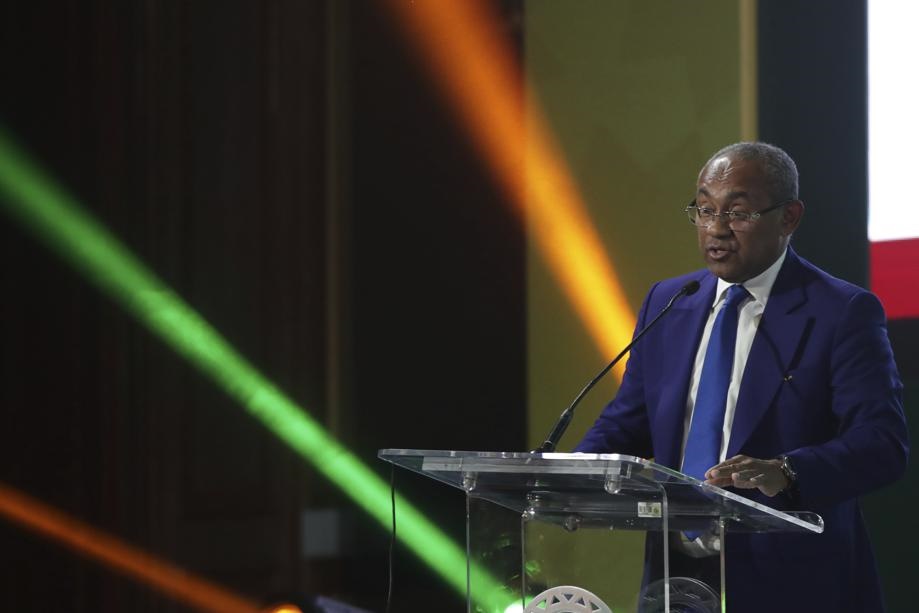
Jordaan’s appointment part of Ahmad’s strategy to hold on to presidency.
The first rumblings of change among CAF vice-presidents came at the Cosafa Challenge Cup in Durban in June.
CAF president Ahmad Ahmad, attending the congress of the regional organisation that had played a vital role in catapulting him to the leadership position, is said to have sought the opinions of close colleagues about elevating Safa president Danny Jordaan to the vice-president position.
After his election to the CAF post, the southern African presidents expressed their disappointment at being largely sidelined as Ahmad forged new relationships with power brokers from west and north Africa, the traditional hubs of African football leadership.
The rumours of a change at the top came after a falling out between Nigeria’s Amaju Pinnick and Ahmad. Pinnick was one of the critical drivers behind Ahmad’s rise to power when the fight to replace former president Issa Hayatou succeeded in May 2017.
When Ahmad arrived in Durban for the Cosafa congress, Jordaan was in Poland with the South African team at the Under-20 World Cup. It was not clear if he would return home at such a critical time for his team, but inside sources say Ahmad emphasised the need for the two to meet, and Jordaan returned.
The relationship between Pinnick and Ahmad, until then, had shown no signs of fraying. What triggered Ahmed’s change of heart remains unknown, but insiders talk about a slow decline over many months.
When Jordaan and Pinnick arrived in Egypt for this year’s Afcon tournament, word of Ahmad’s intention was already in the air. Pinnick was also under pressure from home, where the local Special Presidential Investigative Panel was looking into alleged mismanagement of funds amounting to millions of dollars.
In the days before the CAF congress, Ahmad and Pinnick are said to have had a heated argument when the CAF general secretary Hajji Mouad replied in writing to a query about the $7.9 million that was listed in the Nigerian Football Federation books as having been paid to CAF for “attending the CAF congress”.
Hadjji wrote to the Special Presidential Investigative Panel, saying that CAF had not taken any money from any national association. Pinnick confronted Ahmad, questioning why he had not been made aware of the letter and CAF’s response. This was said to have been the straw that broke the camel’s back, leaving the relationship irreparable.
With his head on the block, Pinnick played his last card – he sought the support of members of the executive committee to oust Ahmad ahead of the CAF congress.
Ahmad’s arrest in Paris after the Fifa congress followed allegations of corruption involving companies associated with friends of his close adviser, Loic Gerand. The allegations centred on inflated invoices, and contracts cancelled and channelled to a company called Tactical Steel. Pinnick is said to have considered Ahmad finished after his arrest and made his move behind the scenes. Ahmad’s release, without charge, is said to have halted his plan in its tracks.
In Cairo, days before the CAF congress, according to sources who wished to remain anonymous “because we still have to make a living in football’’, the plotters approached Jordaan, seeking his support for their “revolution”.
Jordaan declined to come on board. Word doing the rounds on social media controlled by Pinnick was that “Danny has betrayed the revolution”.
Two days before the congress, the sources said, Pinnick approached Ahmad, apologised for his transgressions and pleaded for his position. Ahmad’s mind was already made up.
In the congress, elections were held to fill the positions of several zones in CAF. Ahmad consolidated his position at the helm of the African game by securing the election of all three of his preferred candidates. In the South Zone, Samir Sobha, a close friend and one-time business partner of the CAF president, defeated Zambia’s Andrew Kamanga, a finance expert who had campaigned on a platform of bringing in financial expertise to the organisation embattled by the recent charges of corruption.
Once again, the outcome showed that, in African football, the will of the president still prevails over reason – a carry-over from the days of Hayatou’s reign.
In an executive committee meeting immediately after the congress, Ahmad announced Jordaan’s appointment alongside that of two other nominated members of the executive committee from Somalia and Niger, consolidating his hold on the organisation after almost having lost control after his arrest.
Jordaan was announced as third vice-president, alongside Omari Constant of the Democratic Republic of Congo and Morocco’s Fouzi Lekjaa, who are first and second vice-presidents, respectively.
It remains to be seen how both will react to Jordaan’s appointment as they have been perceived in the past as being part of the anti-Jordaan brigade within CAF.
To strengthen his hand, and to restore a level of respectability to the embattled CAF, Ahmad has turned to Jordaan, who became highly respected in world football after South Africa successfully hosted the 2010 World Cup.
That he has turned to Jordaan, a person whom he shunned as recently as September last year, when he openly supported Malawi’s Walter Manda in the election to the Fifa council, is proof there are no permanent enemies in football and that Ahmad’s quest for survival is his number one priority.
Shortly after the arrest of CAF president Ahmad Ahmad in Paris last month, it was announced – following an executive committee meeting – that the African soccer body’s executive committee had decided to seek Fifa’s intervention.
This unprecedented move was a bid to help the beleaguered organisation get back on track by strengthening areas such as finance, transparency and good governance.
The decision followed leaks of confidential documents in the media that highlighted the extent of financial shenanigans at CAF, and culminated in the two organisations signing an agreement this week finalising the secondment of Fifa’s Senegalese secretary-general, Fatma Samoura, as a “Fifa general delegate for Africa” for an initial six-month period. A six-month extension will require the bodies’ joint approval.
Samoura is mandated to carry out the reforms, virtually putting CAF under administration.
The move raised eyebrows because such an action hadn’t been taken by Fifa against any confederation, not even during football’s darkest hours following the fall of previous president Sepp Blatter, when a whole host of football leaders were arrested.
South America’s regional body, Concacaf, in particular, was subsequently hit by a deluge of arrests. However, at no stage did Fifa even hint at sending anyone to run the organisation.
In the corridors of the Marriott Hotel in Cairo, just before the congress, many spoke about not being prepared to accept the “colonisation of African football”. However, when it came to the crunch, the presidents of the national football associations that make up the CAF congress stayed silent, showing no dissent at all – despite their earlier virulent proclamations. – Ponga Liwewe




 Publications
Publications
 Partners
Partners








